Curriculum Powered by Cross-Faculty Expertise
The MSc in Sustainable Energy Development is taught by a distinguished group of faculty members drawn from across the University of Calgary’s partnering faculties and schools. These leading academics and seasoned professionals bring a wealth of expertise from fields including engineering, business, environmental science, law, and public policy. Together, they deliver a dynamic, interdisciplinary curriculum that reflects the evolving challenges and opportunities within the energy sector. Their collaboration ensures each course remains relevant, rigorous, and rooted in real-world application—offering graduate students an education as comprehensive as it is impactful. The program is currently supported by the following instructors:
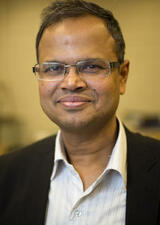
Gopal Achari
PhD (Civil Engineering), MSc (Civil Engineering) University of Calgary; BTech (Civil Engineering) Indian Institute of Technology, Delhi
Dr. Gopal Achari is a Professor in the Department of Civil Engineering at the Schulich School of Engineering and a Professional Engineer in Alberta. His research focuses on water and wastewater treatment using oxidative methods, physio-chemical techniques for remediating contaminated soils, uncertainty analysis, and landfill engineering. He has an extensive publication record and has supervised numerous graduate students, earning several awards for research and teaching excellence. His work on PCB treatment technology earned him the APEGA Environment and Sustainability Award and AsTech Honoree recognition. Dr. Achari previously served as Associate Dean (Research and Graduate Studies) at Schulich and is currently Vice-President of the Canadian Society for Civil Engineering (CSCE). He has chaired CSCE's Environmental Engineering Division and organized successful Environmental Engineering Specialty Conferences.
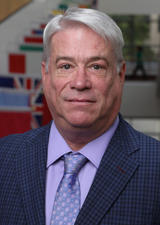
Norman Althouse
MBA, University of Calgary; BA, Athabasca University
Prof. Althouse is a Teaching Professor in Strategy and Global Management at the University of Calgary, where he has taught since January 1995. He coordinates the Introduction to Business Skills course and teaches Organizational Behavior at the graduate level, including in the SEDV and EMBA Programs. His research focuses on the Scholarship of Teaching and Learning (SoTL), improving engagement methods for modern learners. He also explores team building, gender issues in the workplace, and managerial decision-making. Prof. Althouse is active in professional conferences, particularly the Academy of Management, and publishes SoTL articles and business cases. He co-authored The Future of Business, which concluded with its 5th edition in May 2019, and Canadian Business, published in May 2019. He serves on Haskayne committees and participates in activities enhancing the student experience.
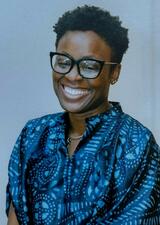
Tinuke Chineme
PhD (Environmental Design), University of Calgary; MSc (Sustainable Energy Development), University of Calgary; BSc (Civil Engineering), University of Ibadan
Dr. Tinuke Chineme is a transdisciplinary action researcher focused on social innovation through community-based enterprises. Her research has received international recognition, earning awards from the Falling Walls Foundation, Dillon Consulting, and the Air, Waste, and Management Association, along with doctoral funding from SSHRC and the University of Calgary’s Eyes High Scholarship. She specializes in integrating cultural, socioeconomic, and environmental considerations into project development and has expertise in community-based methodologies, transdisciplinary research, and international collaboration. Dr. Chineme has co-developed practical solutions for women-led social enterprises in clean energy access and biowaste management in West and East Africa. Her current initiative applies circular economy principles to support One Health objectives, empowering women and marginalized communities. Before academia, she spent 15 years as an engineer in multinational oil companies, strengthening her ability to collaborate with diverse teams.
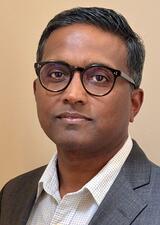
Ganesh Doluweera
PhD (Electrical Engineering with Specialization in Energy and Environmental Systems), MSc (Electrical Engineering), University of Calgary; BSc (Hons) (Engineering), University of Moratuwa
Dr. Ganesh Doluweera is a multidisciplinary professional with expertise in engineering, economics, and public policy, holding a Professional Engineer designation in Alberta. His research focuses on energy system modeling and analysis, particularly for informing decisions related to energy and the environment. He has worked extensively on electric power system planning, wind power integration, carbon management, rural energy development, life cycle assessments, energy infrastructure investments, emerging technology assessment, and macroeconomic impacts of energy transitions. Previously, he served as Director of Research at the Canadian Energy Research Institute, leading projects evaluating the economic, environmental, and social effects of technology and policy interventions in Canadian energy systems. He also has hands-on experience with Light Up the World, designing solid-state home lighting systems and implementing renewable energy-powered electricity systems in rural communities, notably in Sri Lanka.
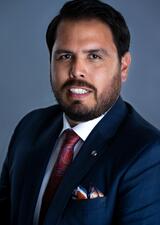
Chris Fry
MSc (Sustainable Energy Development), BA (International Indigenous Studies), University of Calgary.
Chris Fry is a member of Kwanlin Dün First Nation in Whitehorse, Yukon. He holds an undergraduate degree in International Indigenous Studies and a Master of Science in Sustainable Energy Development from the University of Calgary. With over 15 years of experience in Indigenous Relations within the energy industry, he has worked with Indigenous communities across Western Canada on offshore, in situ oil sands, and shale oil and gas projects. His experience includes roles at Imperial Oil, Cenovus, Shell, and TC Energy. Chris is the owner of Sustainative Inc., a consultancy providing Indigenous engagement services for community and corporate organizations. Sustainative Inc. has worked with Dow Canada, Habitat for Humanity, and the Prince Albert Grand Council, supporting meaningful engagement and collaboration between Indigenous and industry partners.

Monique Fry
MA (Communication and Culture, BA (Communication and Culture), University of Calgary
Monique Fry joined BHP, a leading global resources company, in November 2022 as Principal of Indigenous Engagement, Strategy, and Advocacy for North America. She leads the creation of a reconciliation action plan for Canada and enhances BHP’s engagement with tribal organizations in the U.S. Monique is from the Xwchíyò:m First Nation on her grandfather’s side and the shíshálh Nation on her grandmother’s side, both in what is now BC. She has 14+ years of experience in cross-cultural communication and stakeholder relations, focusing on engagement and partnerships with Indigenous communities. Monique has taught college and undergraduate courses at Bow Valley College, St. Mary’s University, and the University of Calgary, specializing in Indigenous studies. She loves teaching, facilitating, and helping students think critically with their hearts and minds.

Marwa Hannouf
PhD (Environmental Design), University of Calgary; BSc Honours (Business Administration), Lebanese University, Beirut, Lebanon
Dr. Marwa Hannouf is a Postdoctoral Associate at the School of Architecture, Planning and Landscape (SAPL) at the University of Calgary, affiliated with the Global Research Initiative in Sustainable Low Carbon Unconventional Resources (GRI). Her research focuses on life cycle sustainability assessment (LCSA) and its application to energy-related technology development, integrating environmental, economic, and social dimensions to guide sustainable decision-making. Her work has covered political, technical, health, and socio-economic aspects of LCSA, aiming to define sustainability thresholds for technologies and product systems. She has published peer-reviewed research on LCSA, social life cycle assessment, systems analysis, and environmental health management. Dr. Hannouf is also co-founder and CEO of TOSSA Sustainability Services Inc., a University of Calgary-supported startup, where she is developing a commercial software tool to help companies incorporate triple-bottom-line life cycle analyses into sustainability strategies.
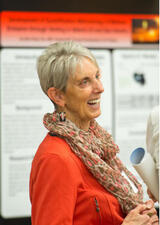
Irene Herremans
PhD, Kent State University; MSA, MBA, Roosevelt University; BS, Ferris State College, CPA
Dr. Irene Herremans teaches in the University of Calgary’s graduate programs, including SEDV, DBA, and PhD, with expertise in accounting, tourism, and environmental management. She has guest lectured at the University of Calgary and other universities, contributing to courses in international accounting, environmental design, and environmental science. She has played a key role in integrated learning experiences within the MBA and tourism curricula, both in-person and via teleconference. Her international teaching experience includes seminars and workshops in Cuba, the Slovak Republic, the UK, and China, as well as international management programs. Recognized for teaching excellence, she has received multiple awards, including “Peak Scholar” and “Woman of the Year” by the American Business Women’s Association. She consults for businesses, serves on non-profit boards, and researches sustainability control systems, sustainability reporting, international business, and performance evaluation, earning numerous research awards.

Poornima Jayasinghe
PhD (Chemical Engineering), MSc (Chemical Engineering), University of Calgary; BSc (Chemical & Process Engineering). University of Moratuwa, Sri Lanka
Dr. Jayasinghe is a Chemical and Process Engineer, specialized in Environmental Engineering, and a registered professional engineer in Alberta. She earned both her Master’s and Doctoral degrees from the University of Calgary. Currently, she is an Assistant Professor in the teaching stream within the Sustainable Systems Engineering (SUSE) program at the Schulich School of Engineering. With extensive research experience spanning several years, she has actively participated in real-world projects, collaborating with private, public, and governmental organizations. Alongside her practical work, she has taught a wide variety of graduate and undergraduate courses across multiple programs and institutes. Dr. Jayasinghe's contributions to both research and teaching have been recognized at numerous national and international conferences, earning multiple prestigious awards for excellence in research, teaching, and overall academic performance.
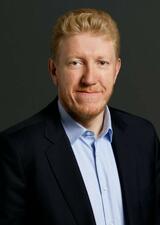
Robert "RJ" Johnston
PhD (International Relations), American University School of International Service; MA (Political Science), McMaster University; BA (Political Studies), Bishop's University
Robert (“RJ”) Johnston focuses on understanding the global geopolitical, market, and policy drivers that shape energy and natural resources markets, including opportunities and risks for Canada. Previously, RJ was Senior Director of Research at the Center on Global Energy Policy at Columbia University. RJ also served as the founder of the Eurasia Group’s Energy, Climate, and Resources practice and was the firm’s CEO from 2013 to 2018. RJ is an independent advisor to the First Nations Climate Initiative and serves as an advisor on North American energy policy to a New York-based diversified investment management firm. He serves as a counselor for the Canada-US Trade Council. He also served as Project Director for the Aspen Institute Task Force on US Critical Minerals Policy. RJ is a member of the Trilateral Commission and co-chairs the Open Minds Next Generation initiative on the dual energy/climate policy challenge. He was a Senior Fellow at the Atlantic Council Global Energy Center from 2017 to 2021.
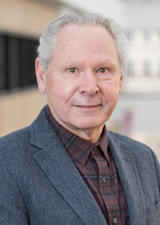
Alan Kennedy
PhD (Environmental Science), MSc (Reclamation Science), University of Calgary; BSc (First Class Honors) (Zoology), University of Alberta
Dr. Alan Kennedy is an environmental scientist with over 35 years of experience in environmental management within the energy sector. He has contributed extensively to Environmental Impact Assessment (EIA) across Canada and internationally, publishing articles on impact assessment in international conferences and environmental journals, and editing two books on cumulative effects assessment in EIA. He is a past Chair of the Advisory Committee for the Institute of Environmental Sustainability at Mount Royal University and serves as a Public Adjudicator for the Alberta Law Society. His research focuses on contemporary issues in EIA, including cumulative environmental effects assessment and management, EIA scoping and impact prediction, and the management of environmental impacts on endangered species. Dr. Kennedy is a registered Professional Agrologist and Professional Biologist in Alberta.
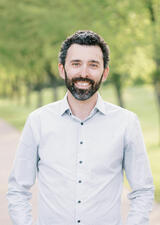
Matt Mayer
DBA, University of Calgary; MSc (Strategic Leadership Towards Sustainability), Blekinge Institute of Technology; BComm, University of Victoria
Dr. Matt Mayer has extensive experience founding and facilitating multi-interest groups to collaborate on complex challenges, including energy transition in Alberta’s energy system at the Energy Futures Lab, circular economy innovation at the Circular Economy Innovation Lab, regenerative agriculture adoption at the Regenerative Agriculture Lab, and climate leadership at the Climate Leadership Lab. He has over 15 years of experience as a consultant in corporate and sustainability strategy, innovation, and organizational development, working with clients across sectors and industries. Dr. Mayer continues this work as Founder of Arete Initiative. He is a sessional instructor at the University of Calgary and Mount Royal University business schools, where he has been teaching courses on strategy and sustainable development for over five years.

Ron Thiessen
PhD (Civil Engineering), University of Calgary; MSc (Civil Engineering), University of Calgary; BSc (Civil Engineering), University of Saskatchewan; Dip (Civil Engineering Technology), Southern Alberta Institute of Technology
Dr. Ron Thiessen is an environmental engineer specializing in resolving degraded land and water issues in Canada’s energy sector. He operates his own engineering consultancy in Alberta, British Columbia, Northwest Territories, and Saskatchewan and provides specialist services to Indigenous communities, law firms, property developers, and large engineering companies. Ron is an Adjunct Professor in the Department of Civil Engineering at the Schulich School of Engineering and has taught graduate courses in sustainable engineering, life cycle sustainability assessment, and environmental remediation. His research interests focus on energy and environmental modelling, particularly incorporating uncertainty and sensitivity analyses.
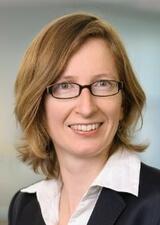
Helga Vanthournout
MBA, International Institute for Management Development; MSc (Environmental Management and Policy), International Institute for Industrial Environmental Economics; MSc (Environmental Engineering), Ghent University
Helga Vanthournout is an environmental professional with over 25 years of experience, including two decades as a management consultant. She has developed expertise in climate change mitigation and adaptation, pollution, waste management, the circular economy, and most recently, biodiversity and natural resources management. At McKinsey & Company, she calculated the environmental, economic, and social case for a Circular Economy (CE) and co-developed its theoretical framework with the Ellen MacArthur Foundation. As lead author on numerous sector and country reports, she gained a deep understanding of CE transition pathways, policy, design, business models, and behavioral change. Her CE client practice spans corporates, governments, and NGOs, ensuring her work remains grounded in real-world applications. She helps students reframe big-picture thinking while mastering the multi-faceted Circular Economy toolkit.

